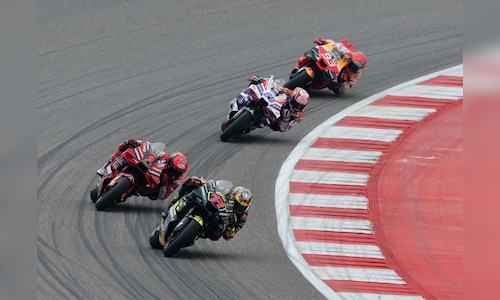The Indian Superbike League, which recently dropped its teaser, seems to be a step in that direction. While there is a palpable interest for superbike racing in India, the infrastructure that will platform and promote the same also wears an encouraging look. Kicking off from amateur, informal races taking place on airstrips and public roads in the 1960s, the groundwork has strengthened with the presence of robust tracks such as Chennai’s Madras Motor Race Track (MMRT) along with makeshift courses in Coimbatore.
The maiden purpose-built circuit came up in the form of the Kari Motor Speedway in Coimbatore, as late as in 2003. Named after the seasoned racer S. Karivardhan, the track has been a breeding ground for local championships and training programs. It was a structured platform for brands like TVS and Honda to test and build high-performance bikes.
Also Read: Why India seems perfectly placed to host a superbike league of its own
However, few courses have hit home like the MMRT in Chennai, which has been homologated by the Fédération Internationale de Motocyclisme (FIM). The circuit, spanning across 3.7 kilometers, has been consistently hosting the Indian National Motorcycle Racing Championship (INMRC) and even welcomes international events such as the Asia Road Racing Championship (ARRC). MMRT has trained top-notch Indian racers such as Sarath Kumar and Rajini Krishnan too.
Block by block, the improvement towards world-class circuits picked up momentum in the 2010s as India joined hands with worldwide motorsports standards with the launch of the Buddh International Circuit in 2011. Though constructed primarily for Formula 1, the spotlight switched to biking with the 5.14 km layout becoming a testing hub for superbikes, riders, and manufacturers alike.
Come the 2020s, FIM homologation mandates have developed by leaps and bounds, causing newer circuits to come up and also improving the existing ones. Safety adherence remains the key, with better run-off areas, high-grip asphalt, and modern pit lane amenities dictating the way races are conducted, bringing about a steady rise in Indian riders taking part in global championships.
The evolution of circuits has helped professionalise the biking culture too, with structured academies and manufacturer-sponsored programs paving their way into the industry. Track days and amateur biking leagues have spiked interest, with even everyday riders testing their skills in world-class facilities of a controlled environment, cutting chances of causing danger on public roads.
With the ISBL looking to add to the competitive biking landscape, the demand for superior infrastructure is only expected to grow in the coming years. As India is continuing to expand its circuit portfolio, the future of professional superbike racing stands at the cusp of an exciting stage.
First Published: Feb 21, 2025 7:54 PM IST

